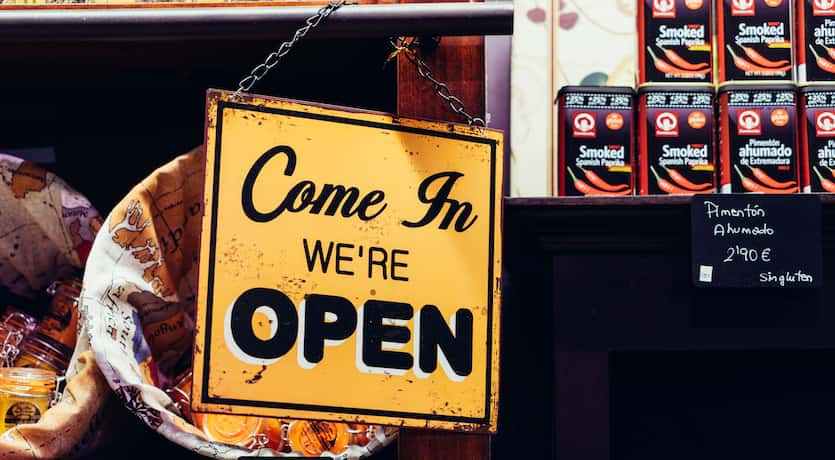For most of our clients, filming involves coming to their place of business and gathering B-roll, recording interviews, and showcasing their services or products. For filming videos at corporate offices that don’t have storefronts, filming during business hours usually presents few if any challenges. Perhaps a few office workers need to be quiet during takes, or a section of the office needs tidying up and clearing for the shoot day, but the production proceeds smoothly as everyone in the area of filming is an employee of the company. In other words, if a supervisor tells them to be quiet, they’re going to comply. For filming in retail locations or senior living homes, though, the challenges can be much more significant. Trying to film a video in a busy store with customers walking in and out would be nearly impossible, not only because of clearance issues, but mainly because of noise and having control of the set.
The biggest advantage of filming during business hours in general is the availability of almost every critical employee, none of whom have to rearrange their schedules much to be available for interviews and filming. For B-roll shots around the office, the employees serve as free extras and allow for sources of visual interest. Whether the employees are working on a computer, working in a warehouse, or otherwise occupied, we can show them doing their daily tasks easily. At the same time, filming can be potentially disruptive to everyday work schedules and could even present physical dangers to the crew in some work environments (construction sites, for instance). For most companies without customers present, filming during business hours still makes the most sense overall, though, especially given the significant financial savings.
Even if filming during work is a no-brainer, be sure to plan the shoot accordingly and be aware of how filming will alter a normal workday. Where will the equipment be staged when not in use? Do you have a break room or storage room or unused office where the crew can safely put their gear? Film shoots, even small ones, generally have a lot of gear requirements, much of which goes unused at any given moment of the day (extra batteries, lenses, camera supports, additional lighting, bags, etc.). On one of my earliest corporate shoots almost ten years ago, I asked a sales and marketing lady if I could put a simple laptop bag in her office for safety, to which she replied half-indignantly, “Yeah, sure, not like I’m trying to do work in here or anything.” When employees are unprepared for filming, or unaware that the day will be different from an ordinary day, they often become exasperated or frustrated easily. Make sure they understand the inconvenience in advance and don’t take their frustration out on the crew!
For retail establishments, you’re almost certainly going to need to film outside of business hours, which presents its own challenges. If your business is open 7 days a week, you won’t want to miss out on a day of revenue just to film a video, but you may not have another choice. One option is to film all B-roll without sound (called MOS in the film industry), focusing only on the action taking place. Without concern for sound, you can easily film during business hours by bringing in a few extras who act as “customers” and have them go through the motions of regular customers. Focus on close and medium shots of your actor “customers,” avoiding any real customers in the footage.
If you have very few customers per day, so more like a dental office than a Best Buy, you could also obtain clearances from most of them before they show up for the filming day. If someone says no, avoid filming them, or film around them. Interviews could be conducted in a private, quiet back room somewhere or office, or you could use voiceover instead of interviews, added in post-production at a later point.
If filming during a business day is too hectic, you need to identify other alternatives, such as after work, before work, or on days the business is closed already. Even so, you’ll need to re-create the scene of a typical business day with extras and actors, or your own employees, but ultimately you will have more control over the situation with all hired talent and your own employees than with real customers in the mix. Keep in mind that if your business doesn’t close until 6 or 7 p.m., you may only realistically have a few hours at the end of the day to film. Spreading the filming time over several nights or mornings will incur additional costs for the videographer, who may be unable to book other work each day and expect to be paid more or less his full day rate even for only 3-4 hours per day. The tradeoff for greater control of the shoot is a higher cost of video production, which is ultimately the case with most decisions relating to corporate videos.

